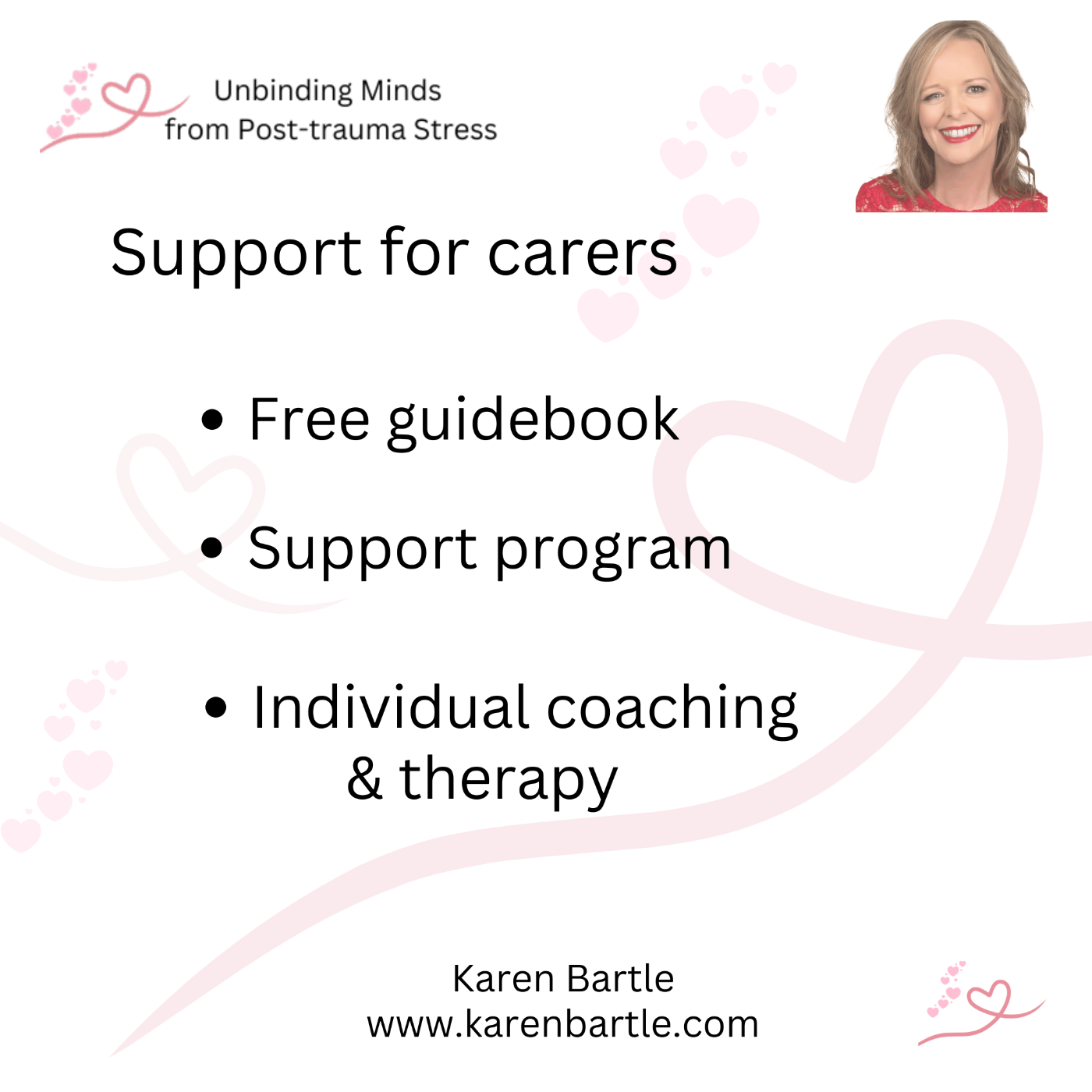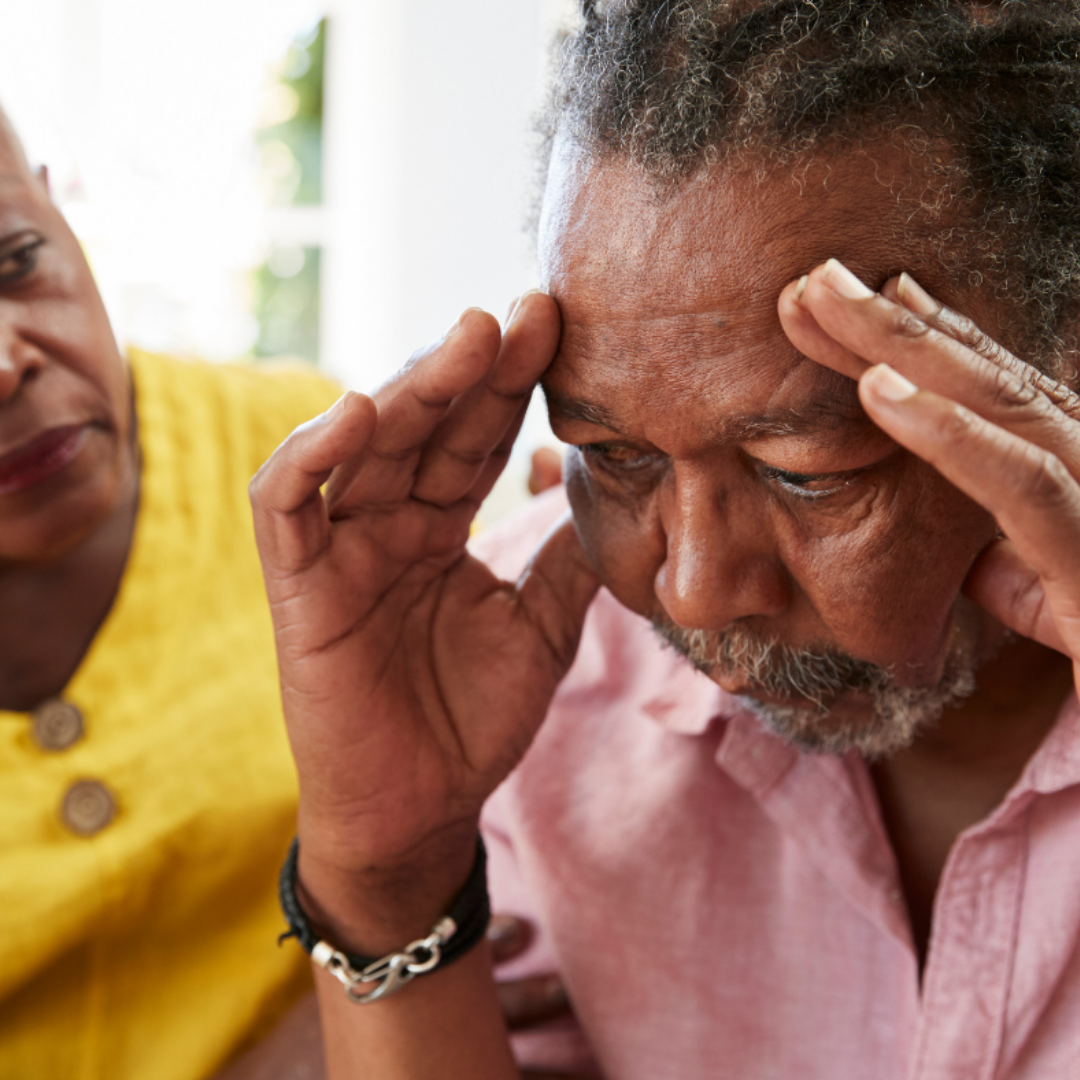Are you a caregiver for someone experiencing post-trauma stress?
Caring for someone recovering from traumatic stress is not easy. In fact, for many, it can be a very stressful daily experience navigating a way through a seemingly endless web of decision making and emotional ups an downs.
We often can't seem to do right for doing wrong which can thwart and prolong suffering and creates delays in forward motion towards progress in getting unstuck from PTSD & trauma.
The difficulty lies in the kinds or symptoms people experience following traumatic stress which prevents them from getting unstuck.
When memories arise containing traumatic content, they are often accompanied by strong emotional reactions that may include fear, anxiety, guilt, shame, anger, sadness, or horror.
Alongside those emotions and feelings, they might experience strong startle responses; constantly looking around for danger (hypervigilance); problems with sleep, concentration, and motivation; and reactive behaviours, like irritability, and engaging in risky and/or self-harming/threatening behaviours.
To try to cope with these distressing images, emotions, and physical sensations and reactions, people typically want to avoid dealing with them and try to escape from internal experiences, such as thoughts or emotions by pushing all memories of the events out of their head by distracting themselves towards other things and staying as busy as possible. Some people avoid or escape by engaging in behaviours such as eating too much (not enough, or purging) or consuming alcohol or drugs.
Typically external reminders of traumatic events will be avoided, such as people, places, or situations that act as reminders of the trauma or feel more difficult to cope with since the trauma.
It makes sense why we would want to avoid memories or reminders of the trauma, however, avoiding the trauma is a big part of what keeps people stuck!







